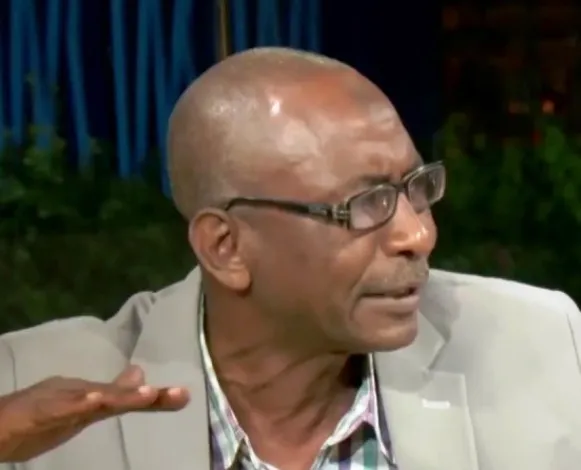Africa in the Sudanese theater

Alsayed Alsir
The presence of Africa at the level of theoretical studies in Sudanese theater can be documented from the date of the publication of the book (On the African Play) by Professor Jamal Muhammad Ahmed, which was published by the University of Khartoum Press in the year 1974, and the book (Features, Illuminations, Intellectual and Aesthetic Values between Theater and African Traditional Heritage), which was published by Abdul Karim Mirghani Center years ago, by the academic author and director, Professor Mamoun Zarrouk.
As for the level of theatrical text and presentation, we point out that our theatrical movement has known, since the seventies of the last century, the translation of some African plays and Dr. Salma Babakir played “The Strong Breed.” The poet Al-Nour Othman Abkar translated the play “The Lion and the Jewel.” The two plays were published in the Journal of the Institute of Music and Theater. The researcher and playwright, Mr. Habib Mudathir, translated the play “The Swamp Dwellers” and it was published in a book. The play itself was translated by the plastic artist Othman Waqi and published in a book series, which was published by Khartoum Magazine. The three plays, as is known, were written by the Nigerian playwright and novelist Wole Soyinka. Professor Ahmed Taha Emfreb translated the play “The Island” by Athol Fugard and it was published by the Sudanese Theater Club in 1991.
The reader, male and female, later discovered that the plays “The Strong Dynasty”, “The Lion and the Jewel” and “The Swamp Dwellers” were presented on theater stages on various occasions. After “The Lion and the Jewel” play was prepared and Sudanized by Mr. Othman Ali Al-Faki, it was shown on the stage of the National Theater, while the play “The Swamp Dwellers” was shown after its name was changed to “The People of the Country” on the stage of the National Theater, then the play “The Strong Dynasty” was presented on the stage of the Higher Institute of Music and Theater and other places. The play “The Island” was also presented in more than one place and occasion, including the stage of the Higher Institute of Music and Theater.
On the other hand, as we search for the African site in the fabric of our theatrical experience, we cannot fail to point out many of the African plays that were presented within the projects of theater students, specifically the graduation projects in the Acting and Directing Division of the Department of Theater at the Higher Institute of Music and Theater, at the time, Faculty of Music and Drama – University of Sudan for Science and Technology, currently, such as the plays “Susie Bans is Dead” and “The Road to Mecca” by Athol Fugard, the play “Okonkwo”, which is a setting of the novel “Things Fall Apart” by Geno Agyebe, the play “The Black Hermit” by James Ngugi, and other plays for which there is no room to mention, this is at the level of translation, preparation, Sudanization and presentation. As for the level of what we can describe as approaching and discussing topics related to African reality and African life in its various manifestations at the levels of history, common destiny, culture, politics and society, we will stand on the fact that the Sudanese theater was not far from the concerns of the mother continent and its strategic issues, the forefront of which is the issue of apartheid and the memory that nourishes it, by which we mean the “slave trade,” in addition to the issue of colonialism and its opposite, which is the African national liberation movements and their symbols. The poet of Africa, the Sudanese poet Muhammad Muftah al-Fitouri, wrote the play “Solara, or the Sorrows of Africa,” which embodied and contained the ugliness of the white man and the suffering of Africans as they are forcibly displaced from their homelands as slaves in the white man’s fields and factories, between two choices: death or slavery. As for colonialism and national liberation movements, and based on the book Theatrical Literature in Sudan – Its Origins and Development by Dr. Bashir Abbas, we will focus on the play “The End of the Play,” written by Professor Mirghani Hassan Yassin and published by “The Voice of Women” magazine in March 1962, which discussed the issue of colonialism as a global phenomenon in contrast to the resistance to it through the Congo Revolution and its symbol, the freedom fighter “Patrice Lumumba” and his struggle for independence until his assassination. Also, we will take a glance on the trend in the play “The Red Table,” written by Professor Al-Taher Abdel Karim and published by Al-Kilani Library in Cairo, “without history,” which in turn discussed and demonstrated the role of colonialism, its companies, and its agents at home in assassinating symbols of African national liberation and working to abort the revolution, kill people’s dreams, and plunder their resources.



